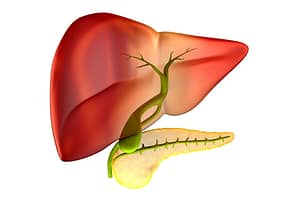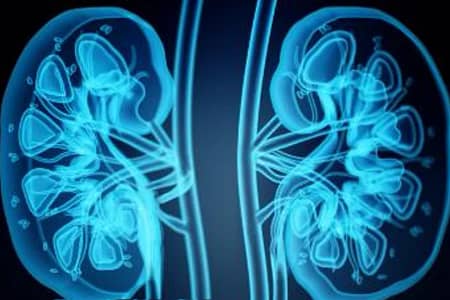
What is a kidney infection?
Kidney infection or pyelonephritis is a kind of urinary tract infection (UTI) that generally begins in your bladder or urethra and travels to one or both of your kidneys. It can be very painful and cause serious complications.
In case of a kidney infection you should immediately seek medical attention. It can permanently damage your kidneys or the bacteria can spread to your bloodstream and cause a life-threatening infection if left untreated.
Anyone can get kidney infection at any age but as women get more bladder infections than men, they also get more kidney infections.
What are the various symptoms of a kidney infection?
Initial symptoms of a kidney infection usually appear after two days of the infection. The symptoms can vary with individuals but some common symptoms are the following.
- Fever and chills
- Chills
- Fatigue or weakness
- Abdominal pain
- Pain in back or groin
- Persistent urge to urinate
- Frequent urination
- Pain or burning sensation while urinating
- Blood or pus in the urine
- Cloudy or bad smelling urine
If the kidney infection has already worsened it may lead to sepsis with symptoms such as fever, chills, rapid breathing and fast heart rate, rashes and confusion.
What are the causes of a kidney infection?
Bacteria or viruses that enter the kidneys from your intestine via the urinary tract are the most common cause of kidney infections. One such bacterial cause is Escherichia coli (E. coli). These bacteria travel to your kidney through the urethra – the tube that carries urine out from your body. The bacteria multiply and spread from urethra to the bladder and kidneys.
Sometimes you can also get a kidney infection by the bacteria from an infection elsewhere in your body. The bacteria can travel from the infection site to your kidney through the bloodstream. In some cases, a kidney infection can appear after a kidney surgery.
Other less common causes of kidney infections include kidney stone and kidney tumour. A kidney stone can block the urine flow resulting in urine build up which can provide a favourable environment for bacteria to grow and multiply. An abnormal shape of your urinary tract or enlarged prostate in men can also cause a kidney infection.
What are the risk factors of a kidney infection?
Factors that can raise your chances of getting a kidney infection include:
- Urinary tract infection (UTI) – 1 out of 30 UTIs ends up being converted into a kidney infection
- Being female – women have higher risk of getting a kidney infection than men. Since urethra is shorter in women than men, therefore it is easier for bacteria to reach the urinary tract from outside of the body. Also, the urethra in women is closer to the vagina and anus, which creates more opportunities for bacteria to enter and spread easily to the urinary tract.
- Pregnancy – Pregnant women are at greater risk of getting bladder infections. Flow of urine can get slowed down due to the baby pressure on the woman’s ureters. Infection from the bladder can reach to pregnant women’s kidney.
- Weak immune system – people who are taking immune suppressive drugs are at higher risk of a kidney infection. Examples includes people with diabetes, HIV or AIDS.
- Bladder nerve damage – This can prevent you from noticing the signs of urinary tract infection which can lead to a kidney infection.
- Catheter use to drain the urine out of your body.
- Abnormal urinary tract shape.
- Urinary tract blockage – This blockage can be from any reason that slows the flow of urine or reduces your ability to empty your bladder when urinating. It can be mainly due to a kidney stone, something abnormal in your urinary tract’s structure or, in men, an enlarged prostate gland.
What are the complications of a kidney infection?
If a kidney infection has not been given proper medical attention or left untreated, it may lead to serious complications which may include one of the following.
- Kidney scarring – it can lead to chronic kidney damage, high blood pressure and ultimately kidney failure.
- Septicaemia – also known as blood poisoning when the infection spreads into your bloodstream.
- Pregnancy complications – women who get a kidney infection during their pregnancy are more likely to deliver an underweight baby.
How a kidney infection is diagnosed?
Your doctor will ask for your medical history and symptoms you are experiencing. They can also perform a physical examination and will inquire for any possible risk factor.
A rectal examination on men can be performed to see if the prostate has become large.
Doctor will recommend a urinalysis – an examination of urine under microscope for bacteria and white blood cells which your body produces to fight the infection. Urine culture can also be recommended to find out the specific type of bacteria present in your urine.
Imaging tests such as X-ray, ultrasound and CT scan can also be performed to look at the texture of your kidney.
What is the treatment for a kidney infection?
Treatment of a kidney infection generally depends on its severity.
Oral antibiotics are the first line of treatment if the infection is mild. The type of prescribed antibiotics can be changed once the results of your urine tests are known to something more specific to your bacterial infection.
You will need to continue taking antibiotics for two or more weeks. A follow up urine culture will be advised after your treatment to make sure the infection has gone. If the infection has returned again you may get another course of antibiotics.
In case of serious infections, you may need to stay in hospital to receive intravenous antibiotics and intravenous fluids.
In some cases surgery may be required to clear a blockage or problematic shape in your urinary tract. This will prevent future kidney infections.
How you can prevent a kidney infection?
You should take steps to prevent your urinary tract infection to reduce your risk of a kidney infection. Some of the suggested steps you can take to prevent urinary tract infection include:
- Drink plenty of fluids specially water
- Don’t hold your urine and urinate as soon as you need to
- Empty your bladder after intercourse which can help to clear bacteria from urethra
- Wipe carefully from front to back after urinating
- Avoid using feminine products in genital area
FAQs
How does a kidney infection differ from a urinary tract infection?
A kidney infection involves the kidneys, while a UTI can affect any part of the urinary tract. Kidney infections are more severe and require prompt medical attention.
What are the common symptoms of a kidney infection?
Symptoms may include fever, back pain, and frequent urination. Recognizing these signs is crucial for early intervention.
Can kidney infections lead to long-term complications?
If left untreated, kidney infections can lead to kidney damage. Timely diagnosis and appropriate treatment are essential to prevent complications.
Who is more susceptible to kidney infections?
Women, individuals with weakened immune systems, and those with a history of urinary tract issues are more susceptible to kidney infections.
What diagnostic tests are performed for kidney infections?
Diagnostic tests may include blood tests, imaging studies, and urine tests to confirm the presence of a kidney infection and determine its severity.






